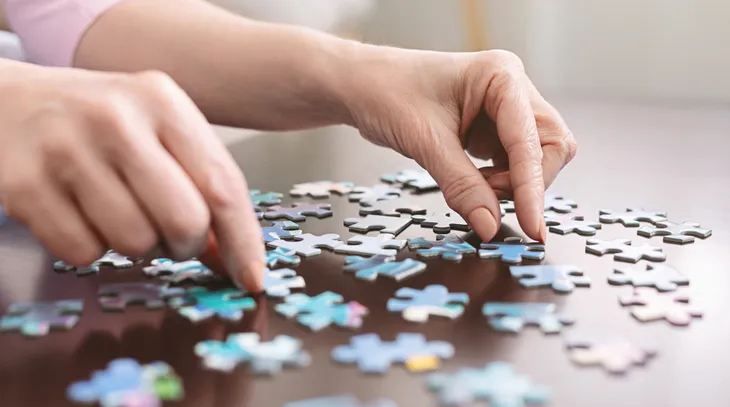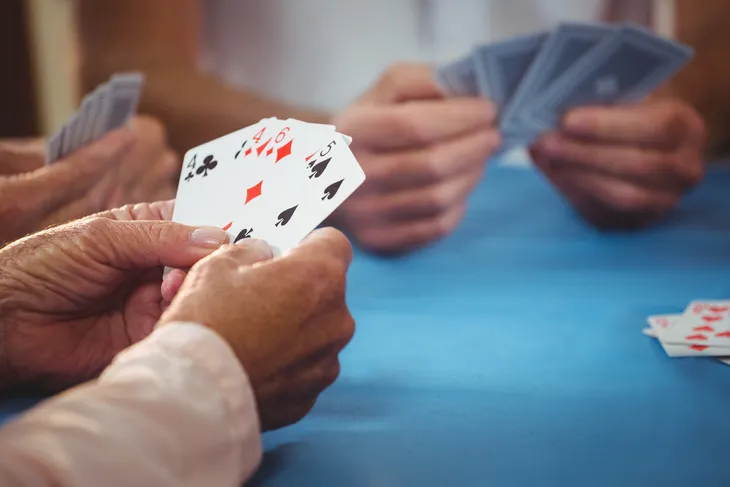You may have noticed a few more gray hairs or wrinkles lately – that’s a fact of life of aging. The same goes with your brain. Age-related cognitive decline is a thing, but similar to how we can do things to look younger, there are activities that can keep our brain more youthful too.
The best part is that while you’re stimulating your brain, you can have fun and enjoy the company of others at the same time. From playing video games to getting together with friends for socializing, here are some of the best things to keep the years off your mind…
Want senior content delivered straight to your inbox? Sign up for our exclusive email list and receive articles and news on diet & nutrition, fitness, and mental health dedicated specifically to our senior audience!
Get Social
Aging sometimes means you lose contact with long-time friends, or your family moves away and doesn’t see you as often. However, this can be a problem because loneliness and isolation increase the risk of dementia and other serious health problems including a stroke, according to the Centers for Disease Control and Prevention (CDC).
There are many ways aging adults can be social while learning a new skill. It could be through signing up for a fun class or joining a group (like a book club, for example), notes Greater Good Magazine. Volunteer work is also ideal, and has been shown to extend life expectancy. Even if you find yourself indoors often for any reason, you can still stay in touch by phoning friends, it adds.
Solve Puzzles
It’s time to dust off that 1,000-piece puzzle and put it to good use. While you can get the satisfaction of finally conquering the beast, it will also help you keep your neural pathways stimulated. (Healthline explains that even a 100-piece puzzle will have positive brain impacts).
The source points to a study that suggests doing a jigsaw puzzle can help your brain sort out where each piece fits, which is a good exercise for your mind. The research notes that doing a puzzle “taps multiple cognitive abilities and is a potential protective factor for cognitive aging.” Meanwhile, Business Insider says completing crossword puzzles can knock 10-years off your brain’s age!
Play Computer Games
Perhaps you enjoy watching your children (or grandchildren) playing video games. However, have you considered picking up a controller and joining in? According to Greater Good Magazine, “computer-based exercises” can be an effective tool to keep your brain from aging prematurely. However, these might not include games that involve shooting aliens from space.
It notes that digital games specifically “designed to improve brain function” can help with the brain’s ability to remember, process information, and stay attentive. While the source mentions Luminosity as an example, VeryWell Mind has a bunch more suggestions. Three-dimensional video games that present a virtual world such as Minecraft and even Super Mario 3D World can also be beneficial for memory.
Play Your Cards Right
Maybe puzzles and video games aren’t your thing. Maybe you’d rather invite a few friends over for a safe round of cards, whether it’s poker or bridge. Not only are these games challenging and fun (while potentially offering social benefits), but they can also lead to greater brain “volume” according to a study.
Other card games that might be good for the brain according to Healthline are gin rummy, hearts, and crazy eights. If you don’t have any friends available for a round, solitaire can also be beneficial, it adds.
Laugh Off The Years
Apparently, laughing is a good way to help you brain stay youthful, according to TheHealthy.com. That’s because funny things cause a release of dopamine that helps you feel good, notes the source. In that way, humor can even become addictive – and laughing is hardly a harmful addiction.
But there’s more to it, says the source. There’s some early research to suggest that laughing often can improve short-term memory, while also lowering levels of cortisol that’s related to stress. So whether you’re reading a funny book or going to a comedy show, make sure to add some laughs to your life.
Make a Note of Learning Music
Have an old guitar collecting dust in the corner? If you want to keep your brain younger, then picking up an instrument and learning to play it can help you boost your cognitive powers, according to Healthline. There’s no age limit for learning to play piano or drums, “because your brain is capable of learning new skills at any point in your life,” it notes.
Meanwhile, the source explains that even the simple, pleasurable act of listening to your favorite tunes can tune up your mind. It points to a study that suggests listening to “happy tunes” can help your brain come up with more “innovative” solutions than sitting in a quiet room.
Get Physical
While exercise clearly has physical benefits such as lowering blood pressure, it can also come with a range of brain benefits, according to Greater Good Magazine. The source points to a scientific review that found “regular aerobic exercise” helped brain function not only in healthy people, but also those who had “mild” cognitive impairments.
You don’t have to start training for a marathon to get the benefits, either. The source explains that even a brisk walk a few times a week over a period of months can have a positive impact, as well as riding a bike or swimming. This is because exercise stimulates neuroplasticity – your brain’s ability to grow neural pathways, which can also help the brain better respond to strokes or trauma from falling, it adds.
Dance Like Everyone’s Watching
On the subject of getting active, you can also incorporate dancing into your lifestyle, explains Healthline.com. Aside from the cardiovascular benefits, the source points to CDC research that suggests learning new dance moves can boost brain processing speed and memory capacity.
Healthline says there are a variety of dance forms that can benefit the brain such as ballroom or contemporary. Line dancing with friends is also a good choice, it adds. If you’re feeling a bit more energetic and adventurous, then you might want to try Zumba, tap, hip hop, or jazz, it adds. You don’t need to be in a class to learn – you can use online video as a guide, suggests the source.
Expand and Share Your Skills
Taking on a new skill may be daunting, but it will ultimately benefit “the connections in your brain,” explains Healthline. More specifically, it refers to a study that shows learning a new skill (whether that’s riding a horse or fixing a car) can benefit memory in older adults.
The source also says that teaching a skill to someone else also can keep your brain younger. Not only will you benefit from the practice to reinforce your abilities, you’ll have to use your brain to communicate how to perform the skill, such as breaking it down into steps, it adds.












